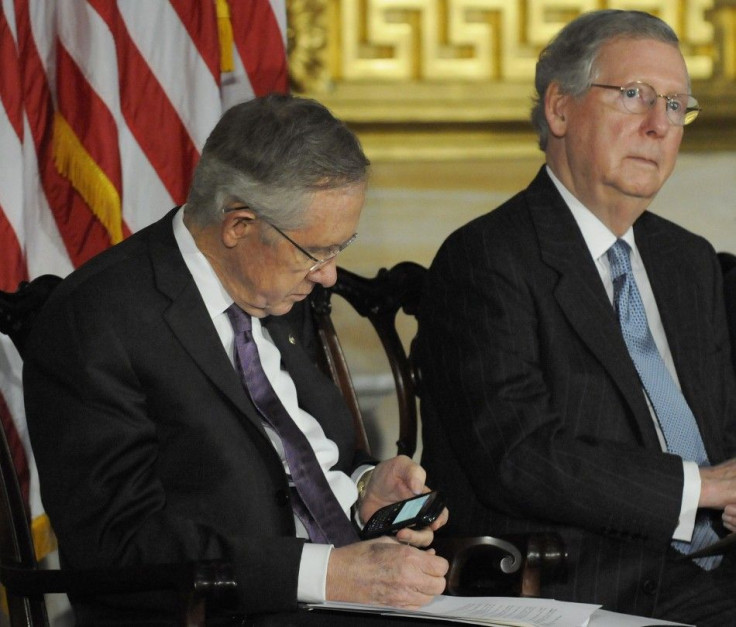Senate Leaders Broker Deal On Judges, Jobs Bill

The judges-for-jobs standoff in the U.S. Senate ended suddenly Wednesday, with the Democratic and Republican leaders striking a deal over stalled judicial nominations.
Both sides agreed to vote on 14 of the president's 17 stalled judicial nominations to the federal courts -- a dozen to the U.S. District Courts and two for openings on the critical appellate Circuit Courts -- by May 7, according to reports. That will average to two votes a week.
With a deal in place, Majority Leader Harry Reid, D-Nev., will drop threatened cloture votes to end debate and hold a vote on a bipartisan jobs bill that will give small businesses greater access to capital markets and investments.
A vote on the Jumpstart Our Business Startups (JOBS) Act, which easily passed the House with 390 ayes, gave Reid an opportunity to push through President Barack Obama's less controversial judicial picks. These would-be judges have been held up much longer than nominees from previous administrations, much to the anger of Democrats.
The cloture votes were set for Wednesday once the Senate finished a transportation funding bill. Minority Leader Mitch McConnell, R-Ky., Tuesday blasted Reid's maneuver as an election-year stunt aimed to paint Republicans as obstructionists blocking Obama's judges.
A group of Republicans led by Sen. Mike Lee of Utah had vowed to gum up the confirmation process for Obama's judicial nominees because of his legally controversial recess appointments to the Consumer Financial Protection Bureau and the National Labor Relations Board.
Still, McConnell said Obama's nominees have been confirmed at a steady clip and that passing the JOBS Act was more important than a very transparent attempt to try to slam-dunk the minority.
The 14 judicial nominees include Stephanie Thacker for the Atlanta-based Fourth Circuit Court of Appeals and Jacqueline Nguyen for the Ninth Circuit in San Francisco and District Court nominees will fill vacancies in California, West Virginia, Utah, New York, Virginia, Nevada, Louisiana, Texas, Missouri, Arkansas and Illinois.
© Copyright IBTimes 2024. All rights reserved.











